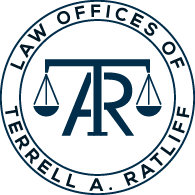Academic dishonesty refers to any behavior that compromises the integrity of academic work. Schools define this broadly, but common allegations include:
- Plagiarism: Using someone else’s work or ideas without proper citation.
- Cheating: Using unauthorized resources during exams or assignments.
- Fabrication: Falsifying data, citations, or other academic materials.
- Honor Code Violations: Engaging in actions that conflict with your school’s ethical policies.
A single incident of academic misconduct can have significant consequences, including:
- Suspension or Expulsion: Immediate removal from your institution or program.
- Permanent Record Implications: Misconduct findings are often reported on transcripts, affecting graduate school or job prospects.
- Loss of Opportunities: Revoked scholarships, internships, and leadership positions.
- Emotional Impact: The stress of fighting a plagiarism accusation or defending against allegations of cheating can take a toll on your mental health.
Schools often treat these cases with strict penalties, but many students are unaware of their rights or how to properly defend themselves.
Your Rights in Academic Misconduct Cases
If you’ve been accused of an academic integrity violation, it’s essential to know your rights. Schools must adhere to their policies, which often include:
- Notification of Charges: You have the right to a clear explanation of the allegations and access to evidence, such as plagiarism reports or testimony.
- A Fair Hearing: Schools are required to provide a structured process for addressing allegations, ensuring you can present your side of the story and call witnesses.
- Legal or Advisor Representation: Many institutions allow students to bring an academic misconduct defense attorney or advisor to disciplinary hearings.
- Appeals Process: If found responsible, you may appeal based on procedural errors, new evidence, or unfair penalties.
Knowing your rights can make a critical difference when facing a disciplinary hearing for alleged cheating or honor code violations.
Common Mistakes Students Make in Academic Dishonesty Cases
Many students unintentionally weaken their defense by:
- Admitting Fault Prematurely: Pressure from professors or administrators may lead students to admit guilt without fully understanding the charges.
- Ignoring Evidence: Automated tools used to detect plagiarism can produce false positives, yet many students fail to challenge these findings.
- Navigating the Process Alone: Without the guidance of an academic dishonesty lawyer, it’s easy to miss critical procedural errors or fail to present a strong defense.
How We Can Help
At our firm, we specialize in defending students accused of academic misconduct, including plagiarism accusations, cheating allegations, and other academic integrity violations. Here’s how we can help:
- Case Review: We’ll analyze the evidence, such as plagiarism reports or documentation from the hearing, and identify weaknesses in the school’s case.
- Hearing Representation: As your advocate, we’ll guide you through the disciplinary process, ensuring your rights are upheld and your voice is heard.
- Appeals: If you’ve already been found responsible, we’ll help you file an appeal to challenge procedural errors or disproportionate penalties.
- Negotiations: In some cases, we can work with your school to resolve the issue without the need for a formal hearing, minimizing the impact on your academic record.
What to Do If You’re Accused of Academic Misconduct
If you’re facing accusations of academic dishonesty, don’t panic. Take these steps:
- Request the Evidence: Ask for copies of plagiarism reports, exam records, or other materials used to support the allegations.
- Review Your School’s Policies: Familiarize yourself with the institution’s process for handling academic misconduct cases.
- Seek Legal Help: Contact an experienced academic misconduct defense attorney to help you navigate the process and build a strong defense.
Take Control of Your Future
Allegations of academic dishonesty are serious, but you don’t have to face them alone. Whether you’re dealing with a plagiarism accusation, cheating allegations, or an honor code violation, our team is here to help. With extensive experience in academic misconduct cases, we know how to protect your rights and fight for the best possible outcome.
Contact us today for a consultation and take the first step toward defending your academic future.
